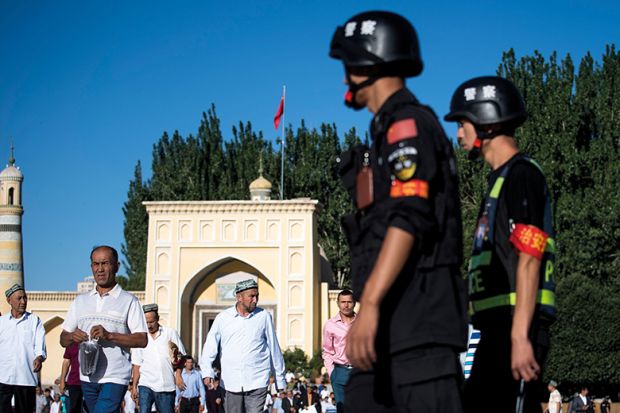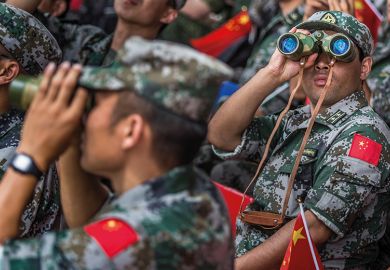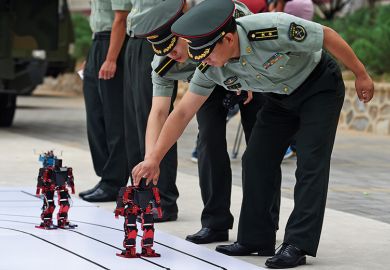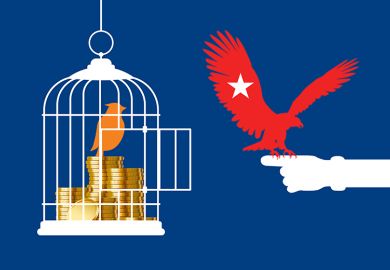Academics have been urged to protest against China’s mass internment of the Uighur community and to reconsider their interactions with state-controlled educational programmes as the country’s persecution of Muslim minorities continues.
A report from the Uyghur Human Rights Project states that at least 338 Uighur intellectuals have been “interned, imprisoned or forcibly disappeared” since April 2017, in what it describes as the “Chinese state’s ‘cultural cleansing’ campaign”. The figure includes 96 students and 61 university lecturers, including 21 members of staff at Xinjiang University.
In total, at least 800,000 and possibly more than 2 million members of Muslim minorities are thought to be detained in internment camps, including re-education facilities, where, according to former detainees and other witnesses, they are subjected to political indoctrination and abuse. It is thought that China views its indigenous populations in Xinjiang as an obstacle to developing its Belt and Road Initiative.
The report calls on universities and researchers outside China to “suspend all cooperation with the Chinese Ministry of Education until the camps are closed, the victims compensated, and perpetrators brought to justice”.
Last month, a bipartisan group of 13 US lawmakers nominated the imprisoned Uighur academic Ilham Tohti for the 2019 Nobel Peace Prize in a bid to pressure China to end its crackdown on the minority group. Professor Tohti has been serving a life sentence since 2014 on separatism-related charges.
More than 600 academics from 40 countries have signed a statement that calls on universities around the world that have formal partnerships with state-run Chinese institutions to “express their concern” and “consider suspending their partnerships”.
Meanwhile, more than 250 scholars, authors and artists have signed the Xinjiang Initiative, committing to raise awareness of the persecution at every public event in which they are a participant.
Rian Thum, senior research fellow at the University of Nottingham, whose research focuses on China and the Muslim world, said that universities should “apply the same level of scrutiny to their relationships with Chinese institutional partners that they did in their relationships with institutions in apartheid South Africa” and, at a minimum, raise concerns about what is happening in Xinjiang with their Chinese partners.
“Those of us who receive invitations to speak or otherwise interact with state-controlled educational programmes need to consider how much our participation lends legitimacy to a government that is engaged in a widespread purge of minority academics and the extralegal internment of Muslim-majority ethnic groups,” he said.
“I for one would be unwilling, for example, to participate in one of the state-funded conferences on the Belt and Road Initiative, a programme of international economic development and diplomatic expansion that is anchored in part in the homeland of the minorities targeted by the current internment and assimilation campaign.”
Rushan Abbas, director of the Campaign for Uyghurs organisation, said that China’s crackdown on Uighurs “must be protested by universities and academics outside China”.
Academics should “commit to raising awareness of the situation in Xinjiang at every public event in which they participate”, while universities must “arrange special speaking panels about the Xinjiang crisis”, she said.
Register to continue
Why register?
- Registration is free and only takes a moment
- Once registered, you can read 3 articles a month
- Sign up for our newsletter
Subscribe
Or subscribe for unlimited access to:
- Unlimited access to news, views, insights & reviews
- Digital editions
- Digital access to THE’s university and college rankings analysis
Already registered or a current subscriber?








